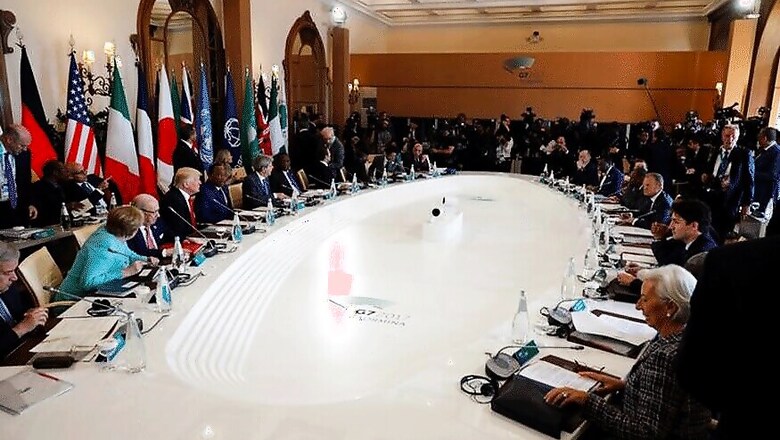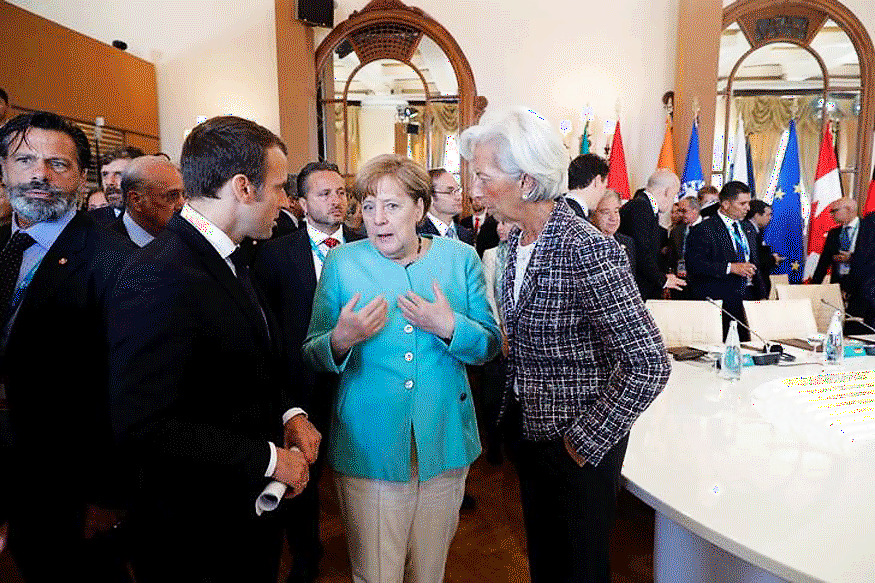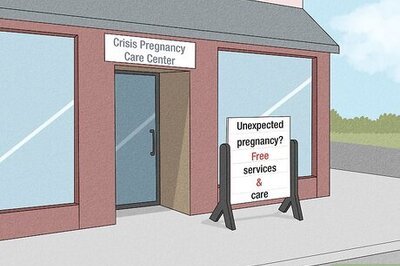
views
Taormina, Italy: Under pressure from allies, US President Donald Trump backed a pledge to fight protectionism on Saturday, but refused to endorse a global climate change accord, saying he needed more time to decide.
Trump, who has previously called global warming a hoax, tweeted that he would make a decision next week on whether to back the 2015 Paris Agreement on curbing carbon emissions following lengthy discussions with G7 partners.
"The entire discussion about climate was very difficult, if not to say very dissatisfying," German Chancellor Angela Merkel told reporters. "There are no indications whether the United States will stay in the Paris Agreement or not."
During his election campaign last year, Trump threatened unilateral tariffs on Mexican and Chinese goods and said he would quit the North American Free Trade agreement unless it is renegotiated to his liking. Earlier this week he called Germany "very bad" on trade because of its surplus with the United States.
"In the end we convinced them to include the fight against protectionism in the final communique, so that was a step forward," said one European diplomat, who declined to be named.
Meeting in a luxury hotel overlooking the Mediterranean sea, hosts Italy had hoped that the summit would focus on Europe's migration crisis and the problems of neighbouring Africa.
Niger President Mahamadou Issoufou urged the G7 to take urgent measures to end the crisis in Libya -- the point of departure for hundreds of thousands of migrants looking for a better life in Europe. He also criticised them for not honouring aid promises to fight poverty in West Africa's poorest regions.
"Be it Niger, a transit nation, or the countries of origin, it is only through development that we will prevent illegal migration," Issoufou said.

French President Emmanuel Macron (left) speaks with German Chancellor Angela Merkel (centre) and Christine Lagarde (right), head of the International Monetary Fund (IMF), as they attend a G7 expanded session during the G7 Summit in Taormina, Sicily on May 27, 2017. (Photo: Reuters/Philippe Wojazer)
RUSSIAN STICKING POINT
The final communique was just six pages long, against 32 pages last year, with diplomats saying the leaders wanted a simpler document to help them reach a wider audience.
The European Union and the United States imposed sanctions on Russia after Moscow annexed Crimea from Ukraine in 2014 and pledged to up the penalties if Russian interference in Ukraine intensified. Trump's promise of warmer ties with Moscow had called into question the US commitment to sanctions.
Diplomats said that on other key international issues, such as Syria and North Korea, there was broad G7 agreement.
"There was very strong opposition by the Americans and British who wanted to refocus on security and water down the expansive language on freedom of movement," said a European diplomat, who declined to be named.
The US president is due to return to Washington later on Saturday at the end of a nine-day tour of the Middle East and Europe -- his first foreign trip since taking office.
Unlike other G7 leaders, he is not due to give a press conference before flying out.
US officials said he had enjoyed "robust" conversations with his allies in Sicily and had also learnt a lot -- especially in the debate on climate change, which he has previously dismissed as a hoax.












Comments
0 comment